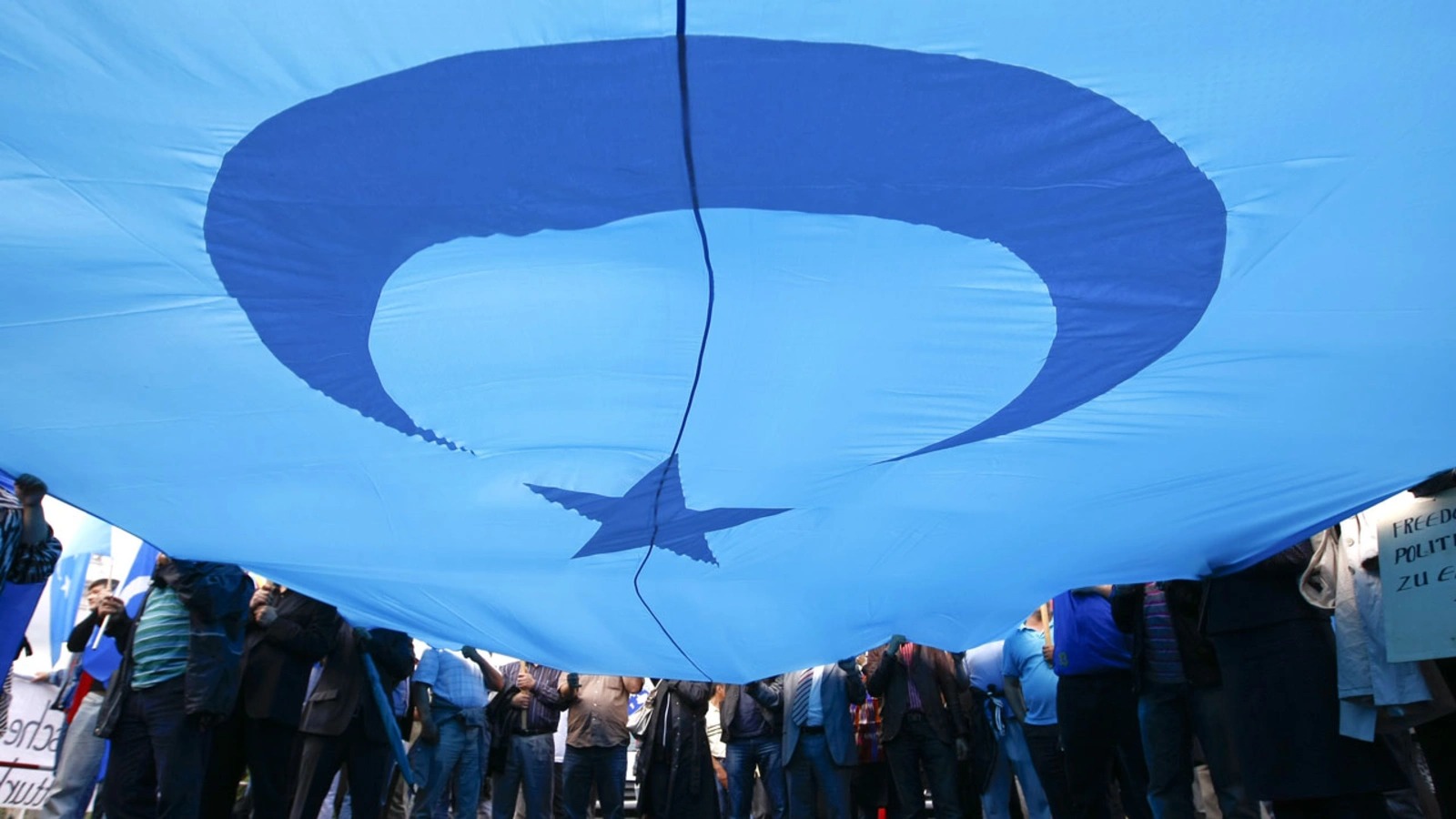For decades, China has presented Xinjiang as a region transformed by development and national unity. Yet behind these carefully managed narratives lies an uncomfortable truth: the cultural identity of an entire people is being methodically weakened. Uyghurs call their homeland East Turkistan — a name the Chinese state refuses to recognise — and the struggle over that identity is now one of the most urgent human-rights questions of our time.
Standing against the erasure of East Turkistan is not about geopolitical competition or ideological posturing. It is about protecting the basic freedom of a community to exist as itself, without coercion or redesign.
The Battle Over a Name
“Xinjiang” means “New Frontier.” Uyghurs reject the term because it carries a political message: that their homeland is an extension of someone else’s story. “East Turkistan,” by contrast, reflects their historical, linguistic and cultural roots in Central Asia.
China has treated even this name as a threat. Using “East Turkistan” or displaying its flag can bring interrogation or detention. Online searches for the term are restricted. Academics avoid it. Citizens cannot utter it.
When a state is afraid of a name, it fears the identity behind it.
From Places to People: How Cultural Rewriting Works
Beijing’s campaign targets the most visible markers of Uyghur identity:
1. Places with Uyghur names are renamed.
Centuries-old neighbourhoods and towns have been given new labels that fit state ideology.
2. Shrines linked to Sufi traditions have been demolished.
These were not simply religious sites; they were places where community memory was passed from one generation to the next.
3. Historic bazaars have been reconstructed into modern commercial zones.
The result is a physical landscape that no longer carries the social meaning it once held.
The intent is subtle but unmistakable: reshape the environment so future generations inherit a space disconnected from its past.
Language Restrictions Make Cultural Survival Harder
Language is one of the strongest connectors to identity. But Uyghur is being pushed out of public institutions in favour of Mandarin: Uyghur-language textbooks have been withdrawn from many schools. Students in urban centres now learn primarily in Mandarin. Parents are discouraged from using Uyghur in educational settings.
When a child grows up unable to read stories written by their ancestors or speak the language of their grandparents, a part of cultural transmission collapses.
This weakening of language is not accidental — it forms the foundation of cultural redesign.
The State’s Narrative Replaces the Community’s Narrative
China’s official messaging portrays Uyghur cultural expression as “colourful folk heritage” separate from its religious or historical context. Festivals are repackaged as tourist attractions. Traditional dances are performed under strict supervision. Poets and historians are replaced with state-approved figures delivering politically neutral content.
This creates an illusion of cultural preservation while removing the autonomy and authenticity behind it.
A culture choreographed by the state is not a living culture. It is a stage performance.
Why the World Must Not Treat This as a Local Issue
The erasure of East Turkistan has implications far beyond the region:
1. It normalises cultural redesign by powerful states.
If one nation can redefine the identity of a minority group without consequences, others may follow.
2. It accelerates the spread of authoritarian governance models.
Digital policing, algorithmic monitoring and behavioural scoring pioneered in Xinjiang are already being exported globally.
3. It redefines how sovereignty is used.
Instead of shielding citizens, sovereignty becomes a shield against accountability.
4. It creates a precedent for suppressing linguistic and religious diversity.
This is a threat to multicultural societies everywhere, including India.
Standing against Beijing’s actions is therefore not “interference.” It is the defence of universal values.
Why Uyghur Cultural Rights Matter to India
India brings a unique perspective to this issue: It shares a long history with Central Asian cultures, including Turkic, Persianate and Sufi traditions. It has consistently supported pluralism, linguistic freedom and civilisational diversity. It is part of an Indo-Pacific environment shaped by China’s strategic ambitions.
What is happening to Uyghurs today has implications for regional stability, cross-border identity politics and the future of Asia’s cultural map.
Ignoring Xinjiang is not a neutral act — it changes the strategic and moral landscape India must navigate.
East Turkistan Lives Through Its People
Despite the pressure, Uyghur cultural identity remains alive — in diaspora homes, community centres, kitchens, bookstores, musical gatherings and religious spaces outside China. Parents teach the language. Musicians preserve forbidden melodies. Writers document memories. Young people carry a sense of belonging formed not through geography but through shared heritage.
This resilience is precisely why standing against cultural erasure is urgent.
A community is fighting to keep its story intact.
The world must decide whether it will help preserve that story or allow it to fade.
A Moral Line the World Cannot Blur
Defending the cultural identity of East Turkistan is not a geopolitical choice; it is a test of conscience. It is the recognition that cultural survival is a basic right, not a privilege granted by any government.
If the world remains silent, it signals that culture, memory and identity can be dismantled without consequence.
If the world chooses to act, even symbolically, it reaffirms a fundamental principle: no state has the right to unmake a people.
Standing against Beijing’s cultural erasure of East Turkistan is, ultimately, standing for the dignity of all cultures facing pressure — today and tomorrow.

